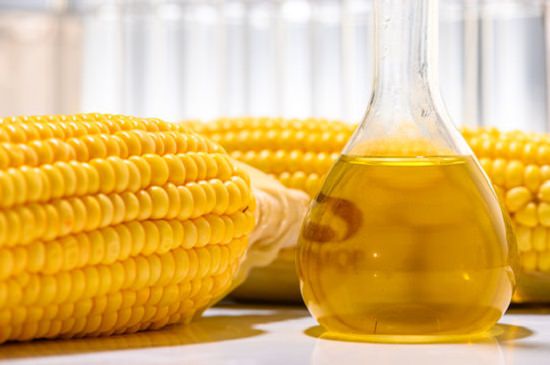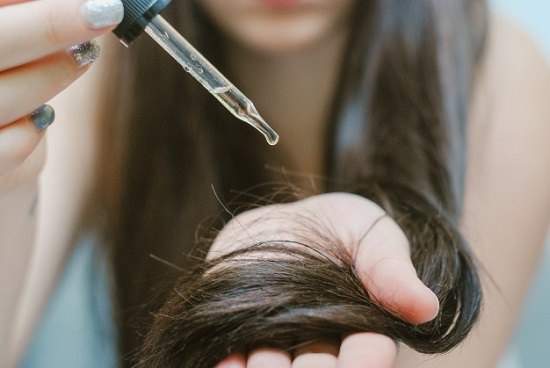One usually thinks of coconut when we talk about hair oils. However, corn oil is very beneficial to hair too. Have a look at these corn oil benefits for hair!

Corn oil is one of the lesser-known and scarcely used oils in hair care. It is extracted from the germ of corn and goes through an elaborate refining process. The refined oil is used in cooking, in soaps and shampoos in the cosmetic industry, and for industrial purposes. The refined corn oil is inexpensive compared to most other cooking oils, but the refining process adds many undesirable elements to corn oil. It also causes the oil to lose some of its mineral and vitamin content. The cold-pressed corn oil is natural, organic, and safe but is expensive.
Chemical composition of corn oil
One tablespoon of corn oil provides:
- 122 Calories
- Saturated fat 1.8g
- Polyunsaturated fat 7g
- Monounsaturated fat 3.8g
- Cholesterol 0
- Sodium 0
- Dietary Fiber 0
- Sugar 0
- Protein 0
- Vitamins E and K
Nutritional benefits
Corn oil is light and has a neutral flavor. Corn oil is 100% fat and is devoid of proteins and carbohydrates. It has a high smoke point, so it is suitable for frying. However, heat destroys some of its vitamin E content. Vitamin E, a fat-soluble nutrient, has anti-inflammatory and antioxidant properties. It neutralizes free radicals that can cause type 2 diabetes, heart disease, and certain cancers.
The polyunsaturated fat, namely omega 3, has an anti-inflammatory effect. However, it has more omega 6, which is pro-inflammation. It has a plant compound called phytosterol, which has anti-inflammatory properties. They lower cholesterol levels and promote heart health. The linoleic acid found in corn oil is an immunostimulant and aids the proper functioning of your heart, kidneys, liver, digestive, and reproductive systems.
Corn oil benefits for your hair
1. Good for Hair Health
Corn oil moisturizes your hair and scalp and prevents dryness and split ends and also adds shine to dull hair. Makes your hair softer and promotes hair growth.
2. Good for Massage
Acts as a great carrier oil for other essential oils like tea tree oil and can be used to treat your hair and scalp to a hot oil massage.
3. Prevents Damage
Vitamin E prevents cell damage and improves blood circulation to your scalp, thus reducing hair loss. Vitamin K boosts calcium absorption, thus preventing hair fall due to calcium deficiency. It also prevents external damage to hair.
4. Good for Styling
Its high heating point makes it suitable for heat styling of your hair. Makes your hair tangle-free and helps tame frizzy hair.
How to use Corn Oil for your Hair?

Disclaimer: To use on your hair and scalp, buy cold-pressed organic corn oil. The refined corn oil used for cooking is not suitable for application on your hair.
Take 2 or 3 tablespoons of corn oil and massage it into your scalp and hair till the tips. You can leave it for a few hours or overnight. Cover your hair with a shower cap to avoid staining your pillows. In the morning, wash your hair with a gentle shampoo and rinse well.
Alternatively, you can warm the oil slightly to facilitate better penetration and follow the same process.
You can also blend it with other hair beneficial essential oils like tea tree oil and massage it into your scalp. You can add two tablespoons of corn oil to the amount of shampoo you intend to use for your hair wash, massage it into your scalp and hair, leave for 5 minutes, and then wash it off with plenty of water.
Side Effects
Corn oil is nowadays made from genetically modified corn. There are presently no known, long term studies on the safety of this type of corn. Highly refined corn oil contains potentially harmful chemicals that are added during the refining process. It also loses many of its nutrients during the process.
Heating the oil produces a compound called acrylamide, which not only interferes with nerve, muscle, and hormone functioning in your body but is also a potential carcinogen.
